
ACM TRANSACTIONS ON SOFTWARE ENGINEERING AND METHODOLOGY
Scope & Guideline
Advancing Software Engineering Through Innovative Research
Introduction
Aims and Scopes
- Software Testing and Quality Assurance:
Research in this area includes methodologies for improving software testing processes, such as automated test generation, test case prioritization, and techniques for enhancing test coverage. The emphasis is on ensuring high software quality through rigorous testing practices. - Machine Learning and AI in Software Engineering:
The journal explores the application of machine learning and artificial intelligence techniques in various aspects of software engineering, including automated program repair, defect prediction, and code summarization. This area highlights the integration of advanced computational techniques to improve software development practices. - Security and Vulnerability Management:
Research focused on identifying, analyzing, and mitigating security vulnerabilities in software systems. This includes automated vulnerability detection, security testing, and the development of secure coding practices to enhance software resilience against attacks. - Software Maintenance and Evolution:
Studies here examine methods and practices for maintaining and evolving software systems, including refactoring, technical debt management, and the impact of software changes on system performance and reliability. - Human Factors in Software Engineering:
This area investigates the impact of human behavior and collaboration on software development processes. Research includes studies on developer productivity, team dynamics, and user experience design, emphasizing the human-centered aspects of software engineering. - Software Development Methodologies:
Research on various software development methodologies, including Agile, DevOps, and Model-Driven Development. This encompasses empirical studies on the effectiveness of these methodologies in real-world applications.
Trending and Emerging
- Automated Testing and Program Repair:
A significant increase in research focused on automated testing techniques and program repair methodologies can be observed. This includes the development of tools and frameworks that leverage AI and machine learning to enhance testing efficiency and accuracy. - AI and Machine Learning Integration:
There is a growing trend in integrating AI and machine learning into software engineering processes, particularly in areas like code completion, defect prediction, and software maintenance. This trend reflects the industry's push towards more intelligent and adaptive software development practices. - Security and Ethical Considerations in Software Engineering:
Emerging themes include a heightened focus on security practices, ethical implications of software development, and the need for responsible AI. As software systems grow in complexity, the importance of incorporating security and ethical considerations into the development lifecycle is increasingly recognized. - User Experience and Human-Centric Design:
Research emphasizing user experience, accessibility, and human-centered design principles is on the rise. This reflects a broader industry trend towards creating software that is not only functional but also user-friendly and inclusive. - Cloud and Distributed Systems Development:
With the rise of cloud computing and microservices architectures, there is increasing research on methodologies and tools for developing, testing, and maintaining distributed systems. This includes studies on performance optimization, fault tolerance, and service orchestration.
Declining or Waning
- Traditional Software Development Practices:
Research focused on conventional software development methodologies, such as Waterfall or V-Model approaches, is becoming less prominent as Agile and DevOps methodologies gain traction. The shift towards more iterative and flexible approaches has diminished the relevance of traditional practices. - Static Code Analysis:
Although static code analysis remains important, there has been a noticeable decline in the volume of research dedicated solely to this area. The focus is shifting towards more dynamic and context-aware analysis methods that can handle the complexities of modern software systems. - Legacy System Maintenance:
Research on maintaining and upgrading legacy systems appears to be waning as organizations increasingly migrate to newer technologies and architectures. The urgency of addressing legacy systems is diminishing as newer frameworks and cloud solutions become more prevalent.
Similar Journals

Journal of Object Technology
Exploring the Depths of Software Engineering ExcellenceJournal of Object Technology is a premier publication housed under the esteemed JOURNAL OBJECT TECHNOLOGY in Switzerland, dedicated to advancing the field of software engineering and technology. With a history of continuous publication since 2002, this journal serves as a platform for innovative research, critical reviews, and case studies that explore the nuances of object-oriented technologies and their applications in software development. Although currently categorized in the lower quartile (Q4), this journal's focus on relevant and emerging topics remains vital for researchers, professionals, and students alike, seeking to enhance their understanding of contemporary software-related issues. Addressing significant milestones and offering insights into future directions, the Journal of Object Technology plays an essential role in the evolving landscape of computer science, providing open access opportunities that ensure wide dissemination of knowledge. Situated at ETH Zurich, the journal is committed to fostering collaboration and dialogue among researchers worldwide, underscoring its importance within the global scholarly community.
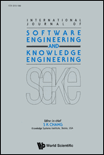
INTERNATIONAL JOURNAL OF SOFTWARE ENGINEERING AND KNOWLEDGE ENGINEERING
Unveiling the Future of Software Engineering and KnowledgeThe INTERNATIONAL JOURNAL OF SOFTWARE ENGINEERING AND KNOWLEDGE ENGINEERING, published by WORLD SCIENTIFIC PUBL CO PTE LTD in Singapore, is a pivotal platform for disseminating cutting-edge research in the fields of software engineering and knowledge systems. With an ISSN of 0218-1940 and an E-ISSN of 1793-6403, this journal has been a reliable resource for scholars and practitioners since its inception in 1996. The journal is indexed across multiple prestigious databases, reflecting its relevance with a Category Quartile ranking of Q3 in both Computer Graphics and Computer Networks for 2023, and it maintains a steady trajectory of growth and scholarly contribution. Although not an Open Access journal, it is accessible through various academic institutions and libraries, ensuring researchers can engage with high-quality, peer-reviewed articles that explore advancements, theoretical developments, and practical applications in software and knowledge engineering. As it converges towards its end year of 2024, this journal continues to foster innovation and knowledge exchange, making it an essential resource for anyone invested in these dynamic fields.

Journal of Communications Software and Systems
Exploring the Intersection of Electrical Engineering and Software DevelopmentThe Journal of Communications Software and Systems, with ISSN 1845-6421 and E-ISSN 1846-6079, is a prominent platform for scholars and practitioners in the field of communications and software engineering, published by the esteemed Croatian Communications & Information Society. Since its establishment in 2006, this Open Access journal, based in Croatia, has committed to disseminating cutting-edge research and innovative solutions that bridge gaps between theory and practical application in the rapidly evolving domain of electrical and electronic engineering. With an impact factor that reflects its relevance, the journal holds significant rankings in both Electrical and Electronic Engineering (Q3) and Software (Q4) categories, according to the 2023 metrics, highlighting its essential role in advancing knowledge in these critical areas. The journal not only serves as a repository of knowledge but also encourages collaborations and discussions among researchers, professionals, and students alike, making it an indispensable resource for anyone looking to stay abreast of the latest developments and research trends from 2006 to 2024 and beyond.
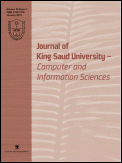
Journal of King Saud University-Computer and Information Sciences
Leading the Charge in Cutting-edge ResearchJournal of King Saud University-Computer and Information Sciences, published by ELSEVIER, is a prestigious open-access journal focusing on the rapidly evolving fields of computer science and information technology. Since its inception in 1996, this journal has provided a platform for high-quality research and innovative ideas, promoting the dissemination of knowledge to a global audience. With a remarkable impact factor and ranked Q1 in the Computer Science (miscellaneous) category as of 2023, it stands among the top 11% of journals in its field, reflecting its commitment to excellence and relevance. The journal proudly carries the ISSN 1319-1578 and E-ISSN 2213-1248, and it is based in Saudi Arabia while being part of a global academic network. With a Scopus rank of #26 out of 232 in general computer science, the Journal of King Saud University-Computer and Information Sciences is an essential resource for researchers, professionals, and students seeking to stay at the forefront of technological advancement. As it continues to thrive through 2024, it invites contributions that will shape the future of computing and information sciences.
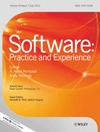
SOFTWARE-PRACTICE & EXPERIENCE
Unveiling the latest trends and methodologies in software engineering.SOFTWARE-PRACTICE & EXPERIENCE, published by Wiley, is a prestigious journal that has significantly contributed to the field of software engineering since its inception in 1971. With a Q2 ranking in Software according to the 2023 category quartiles, it stands among the top tier of journals, positioned in the 79th percentile within Scopus’s Computer Science _ Software category. The journal focuses on disseminating high-quality research that reflects both academic rigour and practical application in software-related practices, ensuring that it remains relevant for researchers, professionals, and students alike. Although it does not currently offer Open Access options, it continues to provide invaluable insights and thorough explorations of contemporary issues in software development, methodology, and experience. As it converges toward 2024, SOFTWARE-PRACTICE & EXPERIENCE aims to foster a greater understanding of effective software practices in a rapidly evolving technological landscape.
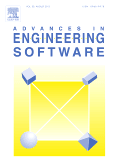
ADVANCES IN ENGINEERING SOFTWARE
Elevating Engineering Practices through Software Innovations.ADVANCES IN ENGINEERING SOFTWARE, published by Elsevier Science Ltd, stands at the forefront of interdisciplinary research in the realms of engineering and software development. With an impressive impact factor reflected in its Q1 and Q2 rankings in the Engineering (Miscellaneous) and Software categories, respectively, this journal serves as an essential platform for researchers and practitioners alike to disseminate innovative findings and methodologies from 1982 to the present. Strategically positioned within the United Kingdom, it engages scholars, professionals, and students by publishing high-quality articles that emphasize advancements in software applications related to engineering challenges. Although it does not currently offer open access, the journal remains highly regarded within the academic community, consistently attracting impactful research and maintaining a commendable Scopus ranking within the top tiers of both general engineering and software disciplines. Explore the latest contributions to enhance your knowledge and stay updated on trailblazing developments in engineering software.

Journal of Cryptographic Engineering
Pioneering the future of information security and cryptographic techniques.The Journal of Cryptographic Engineering, published by Springer Heidelberg, is a prominent platform dedicated to advancing the field of cryptography and its applications in secure communication and information security technologies. With the ISSN 2190-8508 and E-ISSN 2190-8516, this journal showcases rigorous and innovative research contributions from 2011 to 2024, reflecting its commitment to excellence in academic publishing. Recognized among the Q2 category in Computer Networks and Communications and Software, it ranks impressively within the Scopus framework, securing positions in the 59th and 54th percentiles respectively. The Journal aims to facilitate a comprehensive understanding of cryptographic techniques, promote collaboration among researchers, and provide a vital resource for students and professionals. By maintaining high standards of peer review and providing a platform for cutting-edge research, it plays a crucial role in shaping the future of cryptographic engineering.

PROGRAMMING AND COMPUTER SOFTWARE
Unveiling Insights into Evolving Programming TechniquesPROGRAMMING AND COMPUTER SOFTWARE is a distinguished journal committed to advancing the field of software development and programming methodologies. Published by PLEIADES PUBLISHING INC, this journal has been a valuable resource since its inception in 1978, reaching out to researchers, professionals, and students alike. With an emphasis on rigorous peer-reviewed articles, the journal holds a Q3 ranking in the realm of Software according to the latest 2023 Category Quartiles. Though it does not offer open access, the journal ensures that high-quality research is disseminated to its audience, providing insights into evolving programming techniques, software engineering challenges, and innovative solutions. With its convergence of years extending to 2024, PROGRAMMING AND COMPUTER SOFTWARE remains a pivotal publication, fostering a deeper understanding of the complexities in computer programming while supporting the broader software community.
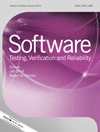
SOFTWARE TESTING VERIFICATION & RELIABILITY
Pioneering Excellence in Software AssuranceSOFTWARE TESTING VERIFICATION & RELIABILITY, published by Wiley, serves as a premier journal in the fields of software engineering, risk management, and quality assurance. With an ISSN of 0960-0833 and E-ISSN 1099-1689, this journal has been a pivotal resource since its inception in 1991, providing insights into the latest methodologies and technologies related to software testing and verification through to 2024. The journal is recognized for its rigorous peer-review process and boasts an impressive reputation, rated Q2 in Media Technology and Safety, Risk, Reliability and Quality, along with a Q3 rank in Software as of 2023. Its Scopus ranks further solidify its standing within the academic community, placing it in the 62nd and 43rd percentiles for Engineering and Computer Science, respectively. The journal fosters a collaborative environment for researchers, professionals, and students, encouraging the exploration of cutting-edge research, applications, and innovations in software testing and reliability, making it an invaluable asset for those seeking to advance their knowledge and expertise in this essential area.

International Journal on Software Tools for Technology Transfer
Exploring Cutting-Edge Tools for Effective Technology TransferInternational Journal on Software Tools for Technology Transfer (ISSN: 1433-2779; E-ISSN: 1433-2787), published by SPRINGER HEIDELBERG, stands as a pivotal platform for advancing the intersection of software engineering and technology transfer. Operating out of Germany, this esteemed journal has contributed significantly to the field since its inception in 1997 and continues to disseminate cutting-edge research through 2024. With a current impact footprint reflected in its Q2 status in Information Systems and Q3 in Software categories, it holds an impressive Scopus rank in the top 60th and 52nd percentiles respectively. Researchers, professionals, and students alike will find its commitment to exploring innovative software tools and techniques essential for enhancing technology transfer processes invaluable. Although the journal does not offer open access, its rigorously peer-reviewed articles are crucial for those seeking high-quality research insights.